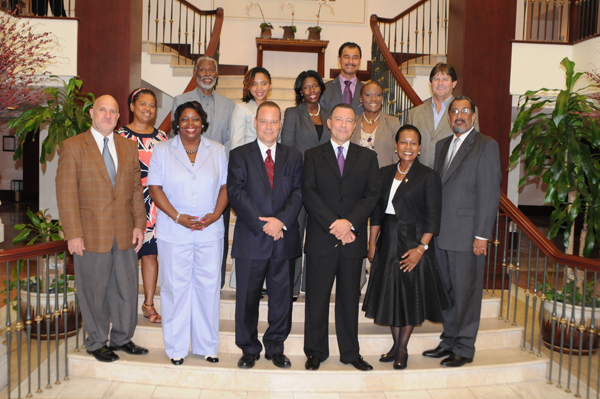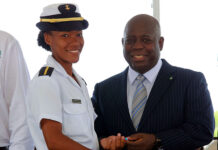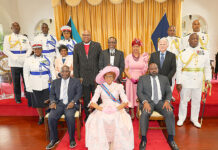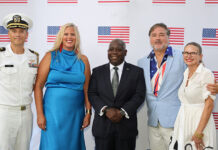The future of the FNM Carl Bethel Working with the Commission

Nassau, The Bahamas – The new Constitution Reform Commission, headed by the Hon. Sean McWeeney, QC, has convened its sessions.
“The members of the Commission have an awesome responsibility,” said Mr McWeeney as he introduced them during the inaugural meeting August 29 at the British Colonial Hilton.
“It is difficult to conceive of any assignment which potentially has more far reaching consequences than to be called upon to play a leading part in the reform of (the country’s Constitution).”
“Although we all have our different allegiances, I think that we will all endeavour to find a common ground so that at all times we will put the interest of the Bahamian people and the interest of the nation above all other interest.”
Members of the Commission are Carl Bethel, Rubie Nottage, Mark Wilson, Lester Mortimer, Tara Cooper-Burnside, Michael Stevenson, Professor Dr Lydia Saunders, Michael Albury, Chandra Sands, Brandis Duncanson, Carla Brown-Roker, Lauren Klein.
Former permanent secretary Thelma Beneby is the secretary to the Commission. She will be assisted by Annie Lloyd, Darron Henfield, Sonobia Smith, and Veronica Frazer.
The Commission has been mandated to present its recommendations for constitutional reform no later than March 31, 2013.
“(The Prime Minister) has indicated to me that he would like to have a referendum on the constitutional issues in either May or June of next year thereby ensuring that the will of the Bahamian people is made known in advance of the 40 th anniversary of Independence,” said Mr McWeeney.
In light of “the very excellent and thorough pubic consultation” that was carried out by the first Commission, said Mr McWeeney, the extent of public consultation this time is likely to follow a different course.
“We don’t anticipate having to have as many public meetings as we had before,” he said. “What we intend to do a little differently this time is to take advantage of high tech methods of communications.”
A web site is to be launched which will facilitate discussion and exchange of ideas between the Commission and members of the pubic, he said.
“We appreciate at the same time there are members of the community who would prefer face to face contact, so there will be a series of public meetings where the members of the public will have that opportunity, but I don’t think it needs to be on the same scale as was the case with the previous Commission,” said Mr McWeeney.
During the meeting, the Commission did not entertain any deep constitutional issues which has been reserved until the start of the intensive sessions in late September.
The Commission dealt primarily with housekeeping matters agreeing on time line frequencies, frequencies of meetings, method and extent of pubic consultations.
Members received a briefing from Mr Klein, of the Attorney General’s Office, on the historical process to date starting with the 2002 referendum and continuing with the Commission that was previously constituted under the chairmanship of the Hon. Paul Lawrence Adderley and Harvey Tynes, QC.
“We anticipate that the Commission will be engaged very solidly in meetings for a six-month period commencing the end of September and going all the way through to the end of March,” Mr McWeeney said.







